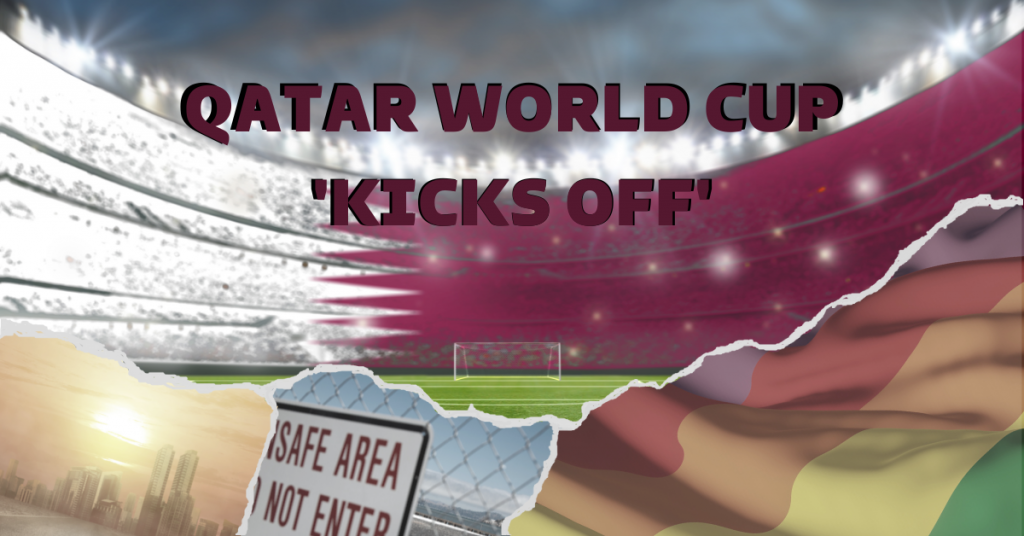The 2022 Football World Cup kicks off in just a few days, but it has already seen multiple major controversies. Label volunteer Will Agar investigates why this World Cup has been so controversial before it even starts.
The 2022 World Cup kicks off in Qatar on the 21st of November, and before a ball has even been touched it is set to be the most controversial edition of the tournament ever. Human rights violations, intense heat, and trouble for fans are all contributing to the contentious winter World Cup.
Sepp Blatter’s decision in 2010 to award Qatar the 2022 World Cup was a confusing choice, particularly due to the country’s limited footballing reputation (having never appeared in a World Cup previously). In order to host the tournament, Qatar have had to build seven new stadiums, largely through the efforts of migrant workers – the treatment of these workers has been the central focus of criticisms of the host nation. The Mail Online describes their accommodation as “not cleared as fit for human habitation,” and it is estimated that as many as 6,500 workers have died during the building process (via The Guardian), due to the hardships of their living conditions. The exploitation and shocking deaths of workers will cast a large shadow over the tournament, suppressing the vibrant feel often present at the World Cup.
The controversies of hosting the World Cup in Qatar are further heightened by temperatures exceeding 40°C in the summer months when the tournament has been played since its creation. Due to the health risks surrounding the intense heat, the 2022 World Cup has been shifted to November-December, thus becoming the first ever winter World Cup. Whilst this decision was necessary, it disrupts the seasons of most European leagues, and further dampens the celebratory atmosphere of the tournament – both reasons raise more questions as to how Qatar was considered suitable.
Another huge criticism of the Qatar World Cup is how fans clearly were not considered when deciding on the host country. The World Cup unites people across the globe, however this element of the tournament is lost due to the inequalities in Qatar, such as homosexuality being illegal. Luke Pollard, MP, (who describes himself as an “England supporting homosexual”) has stated how “it’s not safe for someone like me to watch the World Cup in Qatar.” Harry Kane, along with nine other nations’ captains, will be wearing a ‘OneLove’ rainbow armband to challenge Qatar’s discriminative laws.
Fans should never fear their own safety whilst supporting their team: these concerns demonstrate the shocking lack of awareness and empathy for every fan when the decision of playing the tournament in Qatar was made. Also, although it is not such an injustice like the criminalisation of homosexuality, the fan experience as a whole is severely worse than prior World Cups, with supporters staying in crammed fan villages, and bars charging £80 for a beer, making it harder for fans to enjoy themselves.
However, Qatar is not the only country with issues heading into the World Cup. With Russia having already been banned from the tournament after their invasion of Ukraine, there has also been calls to remove Iran, because of their involvement in the Russian invasion, and the killing of protestors in their own country. Former FIFA president Sep Blatter said he would remove them from the World Cup if he was still in charge, provoking more unrest surrounding the tournament.
Fans and teams alike will continue to protest throughout the tournament, but the damage against football caused by Blatter’s decision of hosting the World Cup in Qatar (which he now admits was a mistake) has already been done. Whatever the outcome is on the pitch, the tournament will always be remembered for the thousands of deaths of workers and prejudice in the country, and Qatar 2022 will go down as the most controversial World Cup to date.
Edited by – Jasmine Trapnell (Sport Editor)
Designed by – Jasmine Trapnell (Sport Editor)


